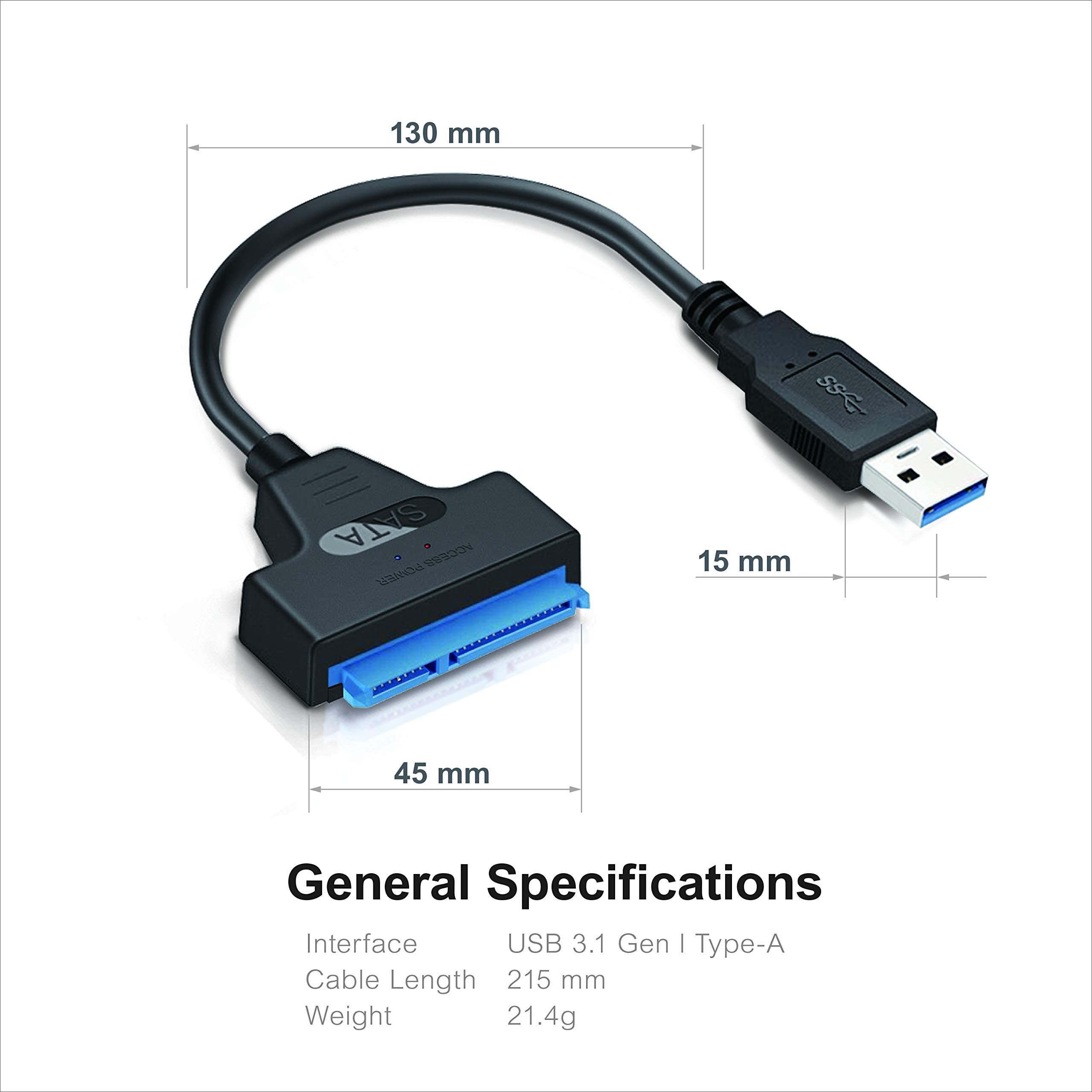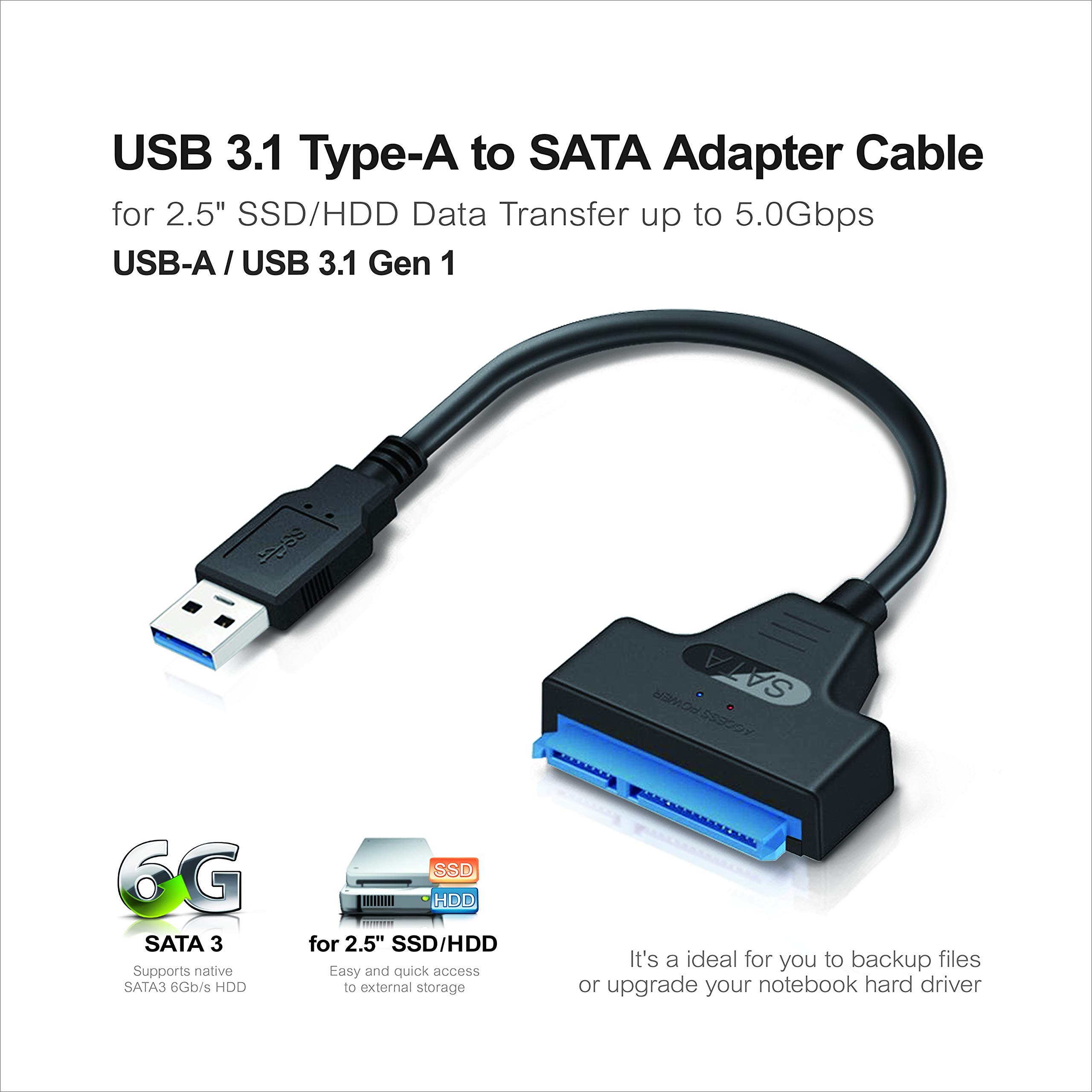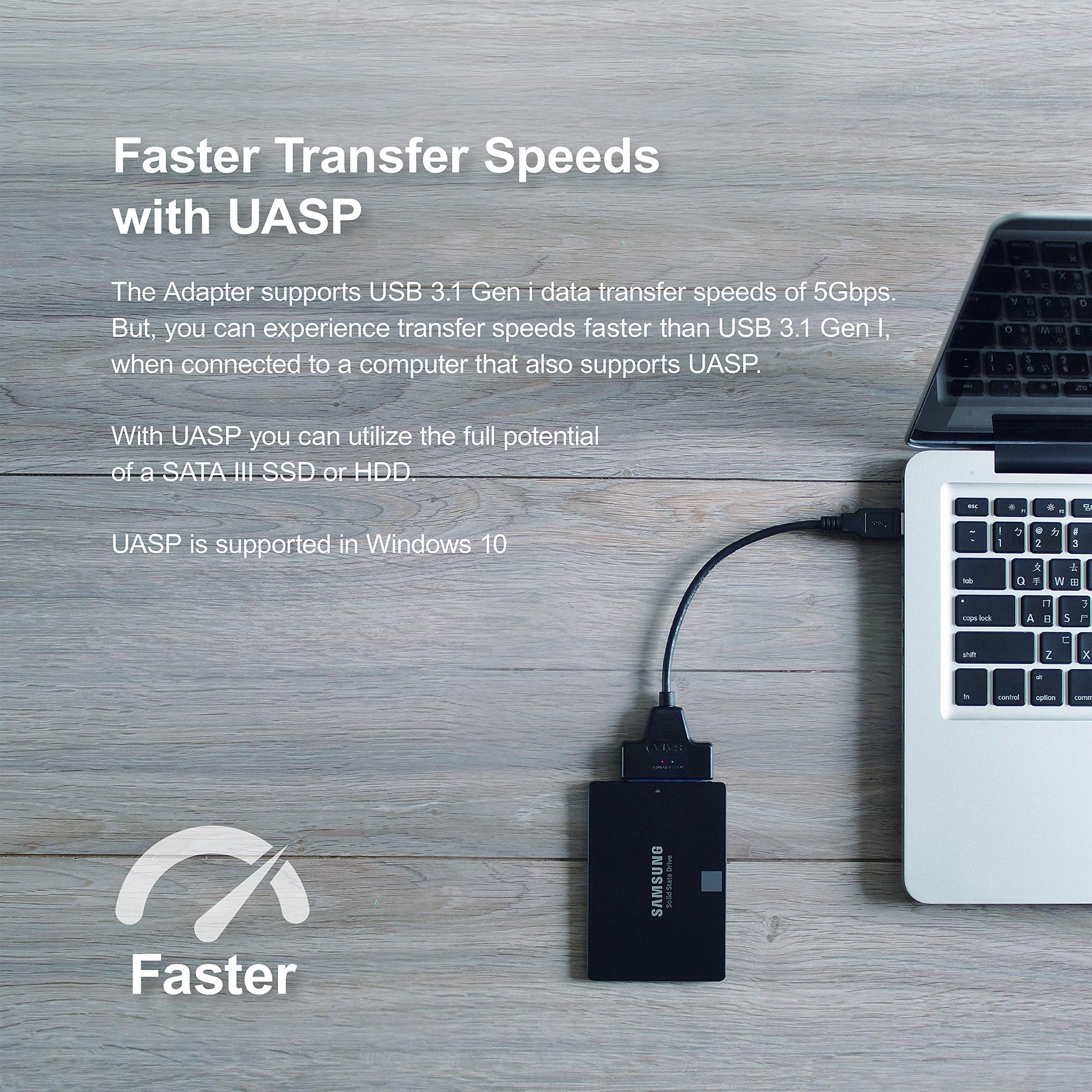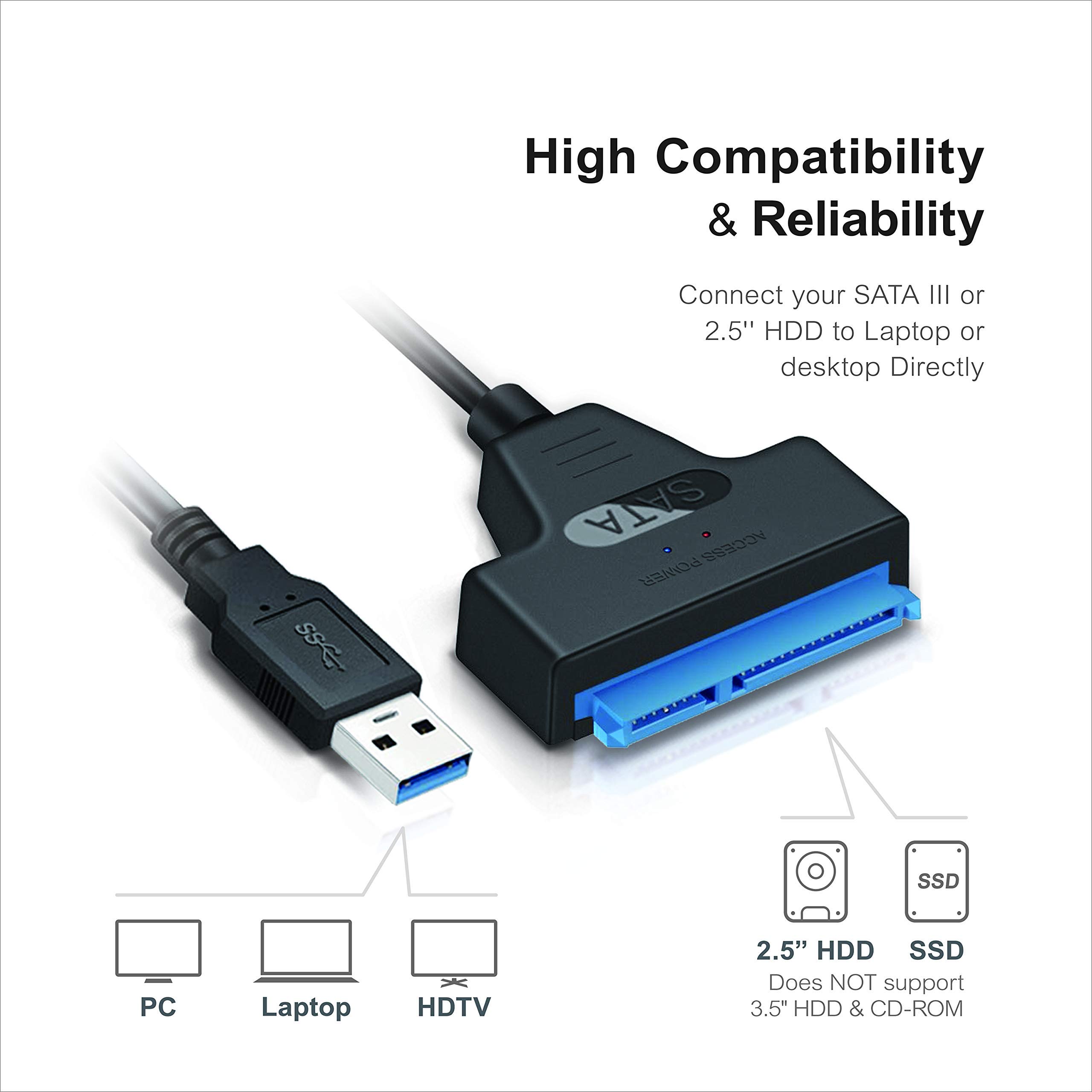Customer Services
Copyright © 2025 Desertcart Holdings Limited
Desert Online General Trading LLC
Warehouse # 7, 4th Street, Umm Ramool, Dubai, 30183, Dubai








🚀 Unlock lightning-fast storage freedom—because your data deserves the best!
The Mediasonic SATA to USB Cable (HND5-SU3) is a high-speed adapter supporting 2.5" SATA I/II/III SSDs and HDDs up to 12TB. It delivers SATA III 6.0Gbps and USB 3.2 Gen 1 (5Gbps) transfer speeds with UASP protocol for optimized performance. Hot-swappable and bus-powered, it requires no drivers and features a one-button switch between USB 3.0 and eSATA modes, plus LED indicators for power and activity, compatible with both PC and Mac.



Trustpilot
2 months ago
3 weeks ago
1 month ago
2 months ago